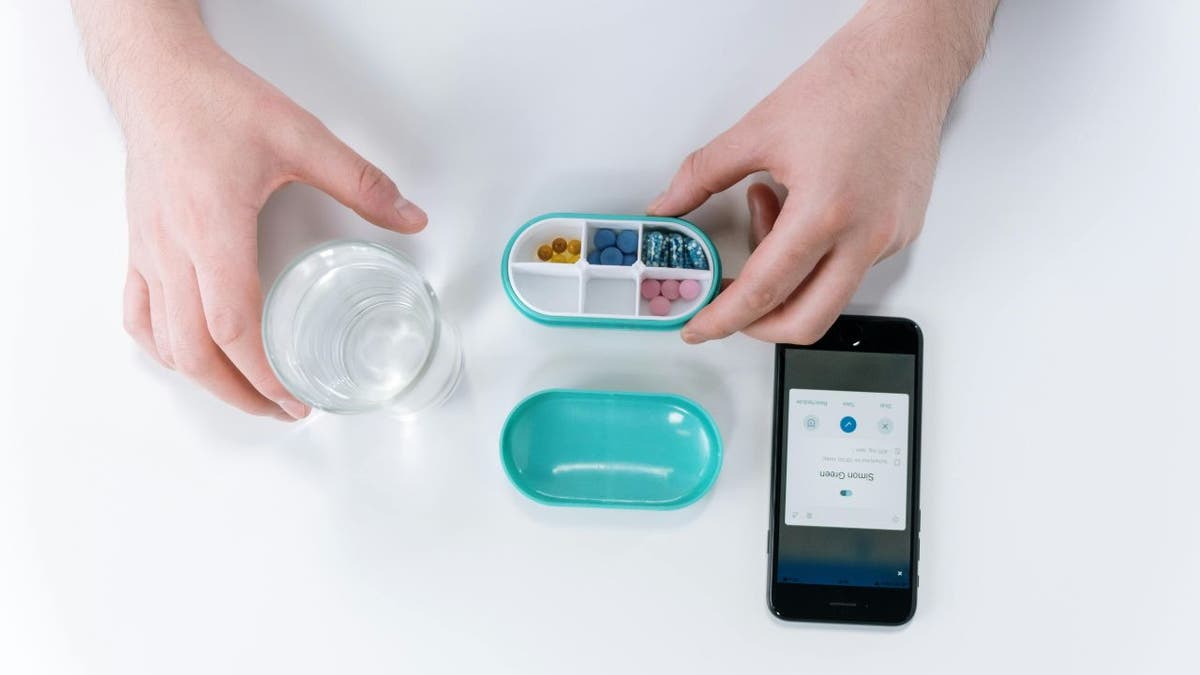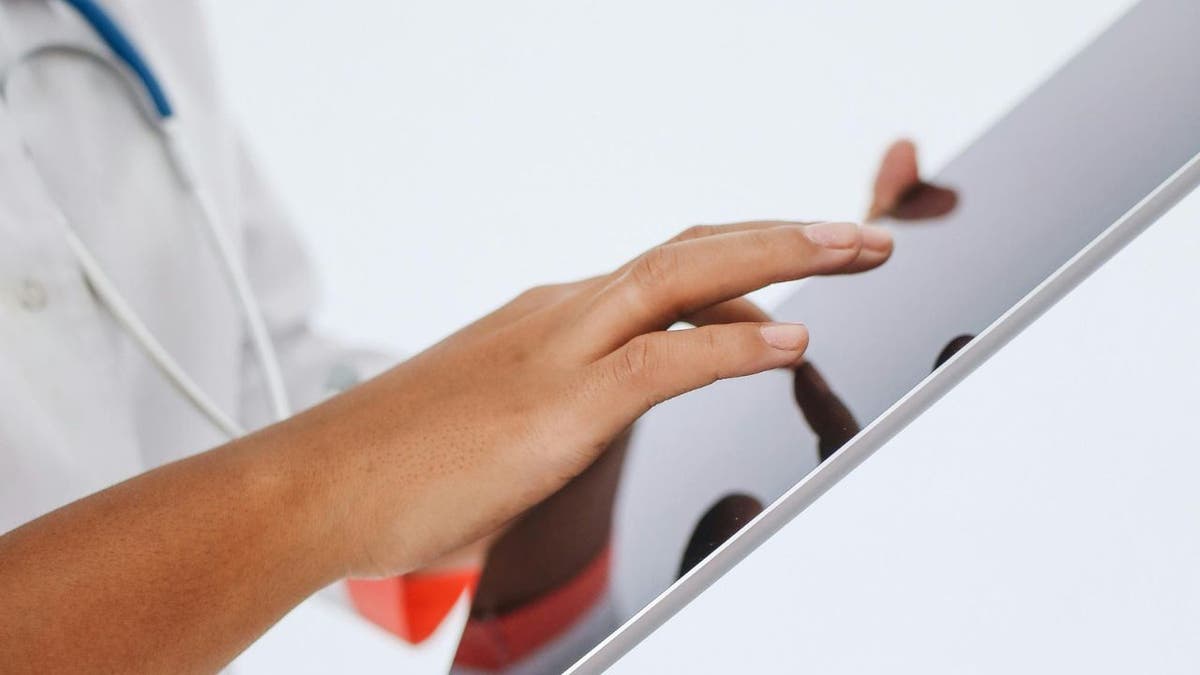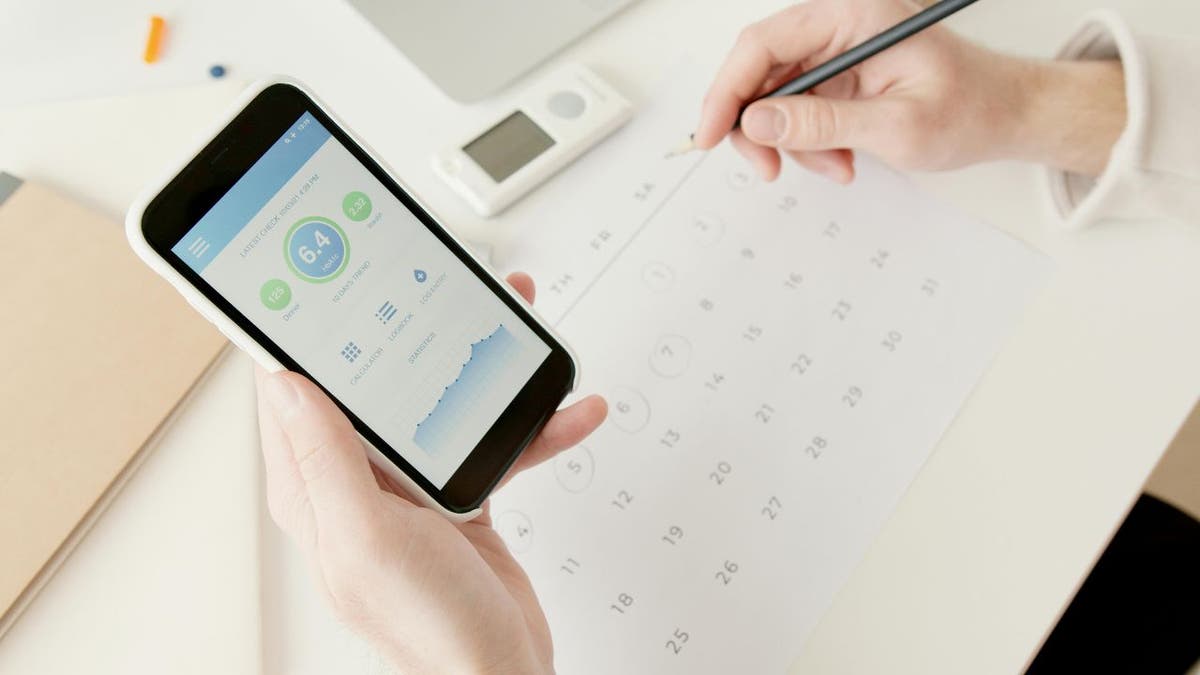NutNow you can listen to the Fox News items!
Your health information can be private and secure with your doctor, but the reality is much more complicated. Data runners collect a wide range of sensitive health data, from diagnostics and recipe details to personal identifiers and sell this data to sellers, insurers and other third parties. These buyers use information to guide ads, adjust insurance premiums or even for purposes you may not expect. Understanding who maintains your health data and how it is used and shared is crucial to protect your privacy.
Sign up -you do to my free cyberguy report
Get my best technological tips, urgent security alerts and exclusive offers delivered directly to your inbox. In addition, you will get instantaneous access to my definitive scam survival guide, free when you unite.
A woman who sees her health application. (Kurt “Cyberguy” Knutsson)
Massive health data infractions feed the data runner industry
You could think that your health data is safe with your doctor. But what if I told you that total strangers could know when you last did “the first signs of dementia” or fill a recipe for anxiety medicines and sell to those who are willing to pay it? A recent breach of data at Yale New Haven Health, Connecticut’s largest healthcare system, exposed sensitive information 5.5 million people. And it is not an isolated incident; New research shows that since 2020, about 94.5 million Americans could have stolen their social security numbers during health data breaches. The frightening part is that Data runners collect and sell the prescribed names, addresses and medicines of patients diagnosed with mental health disorders in large -scale vendors. How much is your medical information worth? Data runners can sell -up to $ 0.06 per log. Let’s break down what these data runners know, to whom they sell it and why it matters to you, your family and, above all, vulnerable groups like the elderly.

Illustration of a medical record. (Kurt “Cyberguy” Knutsson)
Elimination of Custom Data
What types of health information do data runners sell?
There is a difference between protected health information, the type that your doctor and health insurer need to keep private thanks to Hipaaand the data adjacent to the health that leaves behind anywhere else.
Data runners usually do not have access to your official medical records. But they are not regulated by virtue of hipaa or any other law, so they can legally collect:
- Fitness Application Data: Steps counts, heart rate, burned calories.
- Google searches related to symptoms: Even “first signs of dementia” or “knee pain at night”.
- Pharmacy purchases: Both recipes and free sale drugs.
- Well -being and online forms questions: Those “What is your biological age?” Surveys are not just for fun.
- Publications and tastes of social networks: Public Publications on Health topics, Comments on Support Groups.
- Location data: Visits to clinics, pharmacies or addiction recovery centers.
And it does not stop here. Non -sanitary data such as purchase or ads clicking, combine Create a disturbingly accurate health profile.

A woman who uses a health app to keep track of the tablets (Kurt “Cyberguy” Knutsson)
Which hackers can learn about you from a data runner file
Why sell your health data is more dangerous than you think
This is not harmless marketing data. When health information falls into the wrong hands, it creates real risks:
- Higher insurance premiums or limited coverage based on health risks inferred.
- Scams aimed at the elderly and vulnerable groups Use lists of people marked by dementia, heart disease or other conditions.
- Privacy violationsexposing sensitive details such as mental health struggles or fertility treatments.
- Discrimination in hiring, housing or services Based on health -related data.
- Reselling to third parties unknownmaking it impossible to control it once.
And they are not just vendors. A recent study of autism supported by the government led by Robert F. Kennedy Jr. It caused indignation after it was revealed that private health and commercial database data were collected without clear guarantees. Safety experts warn that this type of large -scale data collection is at risk of exposing deeply personal information with little supervision.

A healthcare professional who looks at the health data of a tablet. (Kurt “Cyberguy” Knutsson)
Do you think you can delete your own data? Why is it harder than you think
8 ways to protect your data from data runners
Do you worry who has access to your health data? Although you cannot control all breaches or agents, you can take action to limit what is collected, shared and sold. It is then shown how to return control of your fingerprint for your health phase.
1) Use a personal data removal service: Data runners collect and sell sensitive health information, including diagnostics, recipes and personal identifiers, to sellers, insurers and other third parties. This means details about pharmacy purchases, searches related to symptoms, and more could circulate without your knowledge. A personal data removal service can help you regain control. This is one of the most effective ways to safeguard your privacy and protect your family from yourself from risks such as scams, highest insurance premiums and discrimination.
While no service can guarantee complete deletion of your Internet data, a data removal service is really a smart choice. They are not cheap, and not your privacy. These services do all the work to systematically control and clear the personal information of hundreds of websites. It is what gives me peace of mind and has proven to be the most effective way to delete your personal Internet data. By limiting the available information, reduce the risk of reference fraudster to breaches with information they could find on the dark network, which makes them more difficult to guide you. View my most important options for data removal services here.
Get a Free Exploration To find out if your personal information is already on the network
2) Audit Your Applications and Privacy Settings: Health and fitness applications collect more than you realize. Delete those who do not trust and check permissions from the rest
3) Please be careful of free health tests and symptom verifiers: If a site asks for personal data in exchange for “information”, assume that it is monetizing your answers. Check out your doctor, not a clickbait test.
4) Limit data exchange beyond health care providers: Provide only necessary information when registered with health -related services or applications. Take care of sharing health details on social media or public forums, as data runners can be scraped.
5) Request the minimization of suppliers data: Ask your healthcare suppliers to collect and store only the minimum amount of personal information needed for your care, reducing the risk if their systems are committed.
6) Use a strong antivirus software: Fort antivirus software acts as a shield, protecting your malicious software, Ransomware and other cyberborn software devices that could compromise your personal health data. Choose a good reputation solution that offers real -time threat detection, regular updates and robust protection for all your devices. This protection can also alert you to Phishing emails and ransomware scams, maintaining safe personal information and digital assets. Keeping your antivirus updated is crucial to block malicious bonds and downloads before they can hurt. Get my options for the best antivirus 2025 protection winners for your Windows, Mac, Android and iOS devices.
7) Regularly update your software: Cybernetic threats aimed at health data are constantly evolving and obsolete software can leave your devices vulnerable to attacks that expose your sensitive information. Maintain your operating system, applications, antivirus and safety tools updated He assures you that you have the latest protections against malicious software, ransomware and other farms that data runners or hackers can use to access your health information. Patch Security Forats regular updates before they can be exploited, helping to prevent breaches such as those who have exposed millions of health details of the North -Americans in recent years.
8) Use strong and unique passwords: Your health data is often protected by passwords in applications, portals and devices. The use of strong and unique passwords for each account reduces the risk that a single breach could give someone access to various sources of your personal information. Avoid common or reused passwords and consider using a password manager to generate complex passwords safely. This step is crucial because, once your login credentials have been compromised, data runners or cybercrimers can gather and sell your health -related data, causing privacy, discrimination or directed scam violations. Think of using a Password manager to generate and store complex passwords. Get more details about my The best password managers reviewed by 2025 experts here.
Kurt’s Key Takeaways
Your health should be personal, but in the current digital world, privacy is constantly threatened. Even if you are cautious, your health -related information can be collected, analyzed and sold without your clear consent. The good news is that you can take real measures to reduce your exposure and protect what matters. This is not a fear; It is about keeping informed and taking control of your digital footprint.
Should legislators and technology companies do more to protect our health data, or do everything have to safeguard our own privacy? Do -us to know by writing -us to Cyberguy.com/contact.
For more information on my tips and security alerts, subscribe -you are in my Free Cyberguy Report Bulletin Cyberguy.com/newsletter.
Ask a question to Kurt or to know what stories you would like to cover.
Follow Kurt in their social channels
Answers to Cyberguy Questions Most Failed:
New of Kurt:
Copyright 2025 cyberguy.com. All rights reserved.
#health #data #sold #consent
Image Source : www.foxnews.com
